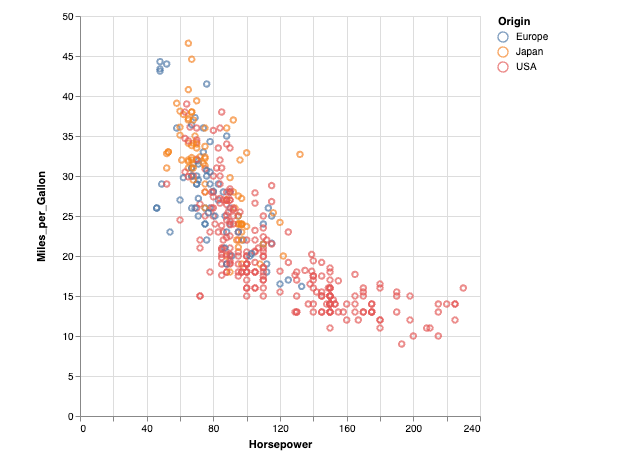Best 15 Julia Packages for Data Engineering
Table of Content
Data engineering is the backbone of any data-driven project. With the right tools, you can streamline your data workflows, from collection and transformation to storage and retrieval.
Julia, known for its high performance and ease of use, offers a plethora of packages tailored for data engineering tasks.



In this post, we’ll explore the top 15 Julia packages that can supercharge your data engineering projects.
1. DataFrames.jl
DataFrames.jl is a cornerstone for data manipulation in Julia. Similar to pandas in Python, it provides a flexible and powerful way to handle tabular data. Whether you're cleaning data, performing transformations, or integrating with other packages, DataFrames.jl is indispensable.
Features:
- Easy data manipulation and cleaning
- Support for various data types
- Integration with other Julia packages

2. CSV.jl
When working with CSV files, CSV.jl is your go-to package. It's optimized for performance, making it ideal for handling large datasets. CSV.jl ensures that you can read and write CSV files quickly and accurately, integrating seamlessly with DataFrames.jl.
The package is tested against Julia 1.0, current stable release, and nightly on Linux, OS X, and Windows.
Features:
- High performance for large datasets
- Robust handling of different CSV formats
- Integration with DataFrames.jl
3. Query.jl
For SQL-like data manipulation, Query.jl offers a powerful syntax that makes querying data intuitive. It's compatible with various data structures, allowing for complex transformations and analyses with ease.
Query is a package for querying julia data sources. It can filter, project, join and group data from any iterable data source, including all the sources supported in IterableTables.jl. One can for example query any of the following data sources: any array, DataFrames, DataStreams (including CSV, Feather, SQLite, ODBC), DataTables, IndexedTables, TimeSeries, Temporal, TypedTables and DifferentialEquations (any DESolution).
Query is heavily inspired by LINQ, in fact right now the package is largely an implementation of the LINQ part of the C# specification. Future versions of Query will most likely add features that are not found in the original LINQ design.
Features:
- SQL-like syntax for data queries
- Works seamlessly with DataFrames.jl and other data structures
- Support for complex data transformations
4. JuliaDB.jl
Handling large datasets? JuliaDB.jl provides distributed database capabilities, enabling scalable and high-performance data storage and processing. It's perfect for big data applications, ensuring your data engineering tasks are both efficient and effective.
Features:
- Scalable and distributed data storage
- Support for in-memory and disk-based operations
- High-performance data processing
- Load multi-dimensional datasets quickly and incrementally.
- Index the data and perform filter, aggregate, sort and join operations.
- Save results and load them efficiently later.
- Use Julia's built-in parallelism to fully utilize any machine or cluster.
5. SQLite.jl
SQLite.jl offers a lightweight interface to SQLite databases, allowing you to perform SQL queries directly from Julia. It's straightforward to use and integrates well with DataFrames.jl, making it a great choice for small to medium-sized projects.
Features:
- Lightweight and easy to use
- Support for SQL queries
- Integration with DataFrames.jl
6. Feather.jl
Feather.jl provides a fast binary format for storing data frames. Its high-speed reading and writing capabilities, along with cross-language support, make it an excellent choice for handling large datasets efficiently.
Features:
- High-speed data reading and writing
- Cross-language support (Python, R)
- Ideal for large datasets
7. StatsBase.jl
StatsBase.jl offers essential statistical functions that are crucial for data analysis. From descriptive statistics to probability distributions, it covers a wide range of statistical needs and integrates seamlessly with DataFrames.jl.
Features:
- Descriptive statistics
- Random sampling and probability distributions
- Integration with DataFrames.jl
8. Plots.jl
Visualizing data is made easy with Plots.jl. This versatile plotting package supports multiple backends, allowing you to create various types of plots. It's highly customizable and integrates well with data frames, making it a favorite for data visualization.
Features:
- Easy to create various types of plots
- Customizable and extensible
- Integration with data frames for visualizations
9. VegaLite.jl
For interactive graphics, VegaLite.jl provides a high-level grammar that's both powerful and easy to use. Its declarative syntax and support for interactive plots make it ideal for creating compelling visualizations.
VegaLite.jl allows you to create a wide range of statistical plots. It exposes the full functionality of the underlying Vega-Lite and is at the same time tightly integrated into the julia ecosystem. Here is an example of a scatter plot:
using VegaLite, VegaDatasets
dataset("cars") |>
@vlplot(
:point,
x=:Horsepower,
y=:Miles_per_Gallon,
color=:Origin,
width=400,
height=400
)
Features:
- Declarative syntax for creating visualizations
- Support for interactive plots
- Integration with DataFrames.jl
10. MLJ.jl
MLJ.jl is a comprehensive machine learning framework that integrates seamlessly with data engineering workflows. It provides tools for model training, evaluation, and deployment, making it a robust choice for machine learning projects.
Features:
- Comprehensive suite of machine learning tools
- Easy integration with data engineering pipelines
- Support for model training and evaluation
11. LightGraphs.jl
Graph analysis is made easy with LightGraphs.jl. It offers high-performance graph algorithms and supports various graph types, making it a valuable tool for data engineers working with network data.
This library also offers additional functionalities through other 4 packages that include:
- LightGraphsExtras.jl: extra functions for graph analysis.
- MetaGraphs.jl: graphs with associated meta-data.
- SimpleWeightedGraphs.jl: weighted graphs.
- GraphIO.jl: tools for importing and exporting graph objects using common file types like edgelists, GraphML, Pajek NET, and more.
Features:
- High-performance graph algorithms
- Support for various graph types
- Integration with data engineering tasks
12. Flux.jl
Flux.jl is a flexible and easy-to-use machine learning library. Its API supports neural networks and other ML models, integrating smoothly with data engineering pipelines to provide powerful machine learning capabilities.
Features:
- Easy-to-use API for deep learning
- Support for neural networks and other ML models
- Integration with data engineering workflow
- Developer-friendly documentation

13. DataVoyager.jl
Exploring and visualizing data interactively is a breeze with DataVoyager.jl. It provides tools for interactive data exploration, supporting various plot types and integrating well with VegaLite.jl.
Features:
- Interactive data exploration tools
- Support for various plot types
- Integration with VegaLite.jl
14. DataStreams.jl
DataStreams.jl is designed for handling data streams, supporting various data sources and sinks. Its high-performance data streaming capabilities make it an essential tool for real-time data engineering tasks.
Features:
- Support for various data sources and sinks
- Easy integration with other Julia data packages
- High-performance data streaming
15. Tables.jl
Tables.jl unifies different tabular data formats, providing a consistent interface for working with tabular data. Its high performance and ease of integration with other Julia packages make it a must-have for any data engineer.
Features:
- Unifies different tabular data formats
- Easy integration with other Julia packages
- High performance for data manipulation
Conclusion:
Julia’s ecosystem offers a rich set of packages that can enhance your data engineering workflow. From data manipulation and storage to visualization and machine learning, these 15 packages provide the tools you need to tackle any data engineering challenge.
Start exploring these packages today and take your data projects to the next level!











